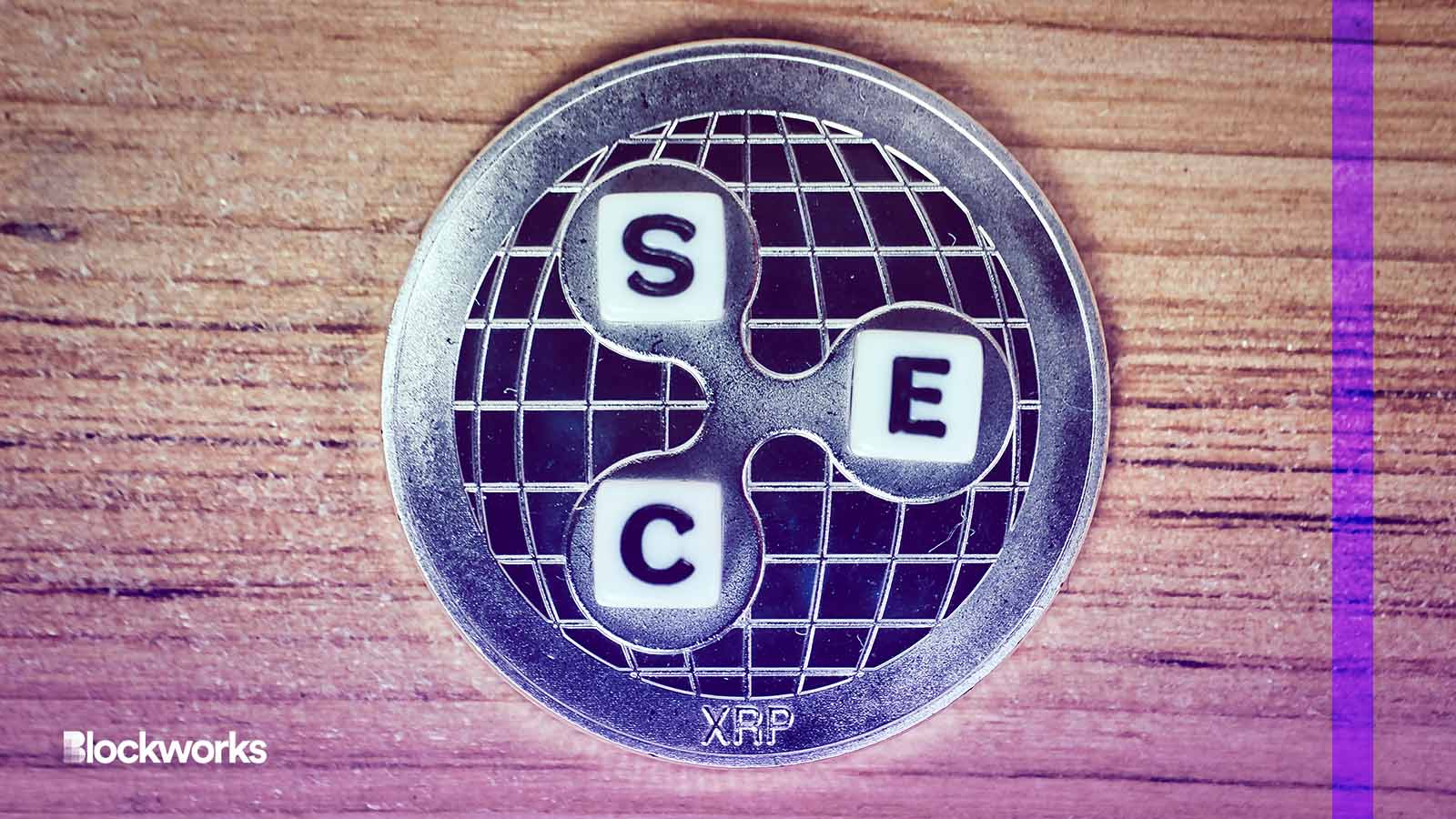The SEC is vying for a Ripple appeal. Here’s what to watch out for
The SEC wants to overturn two rulings: that programmatic sales of XRP and Ripple’s distribution of XRP tokens in exchange for labor and services are not securities offerings or sales

Van dii/Shutterstock modified by Blockworks
The US Securities and Exchange Commission said it plans to challenge a federal judge’s ruling that certain XRP token offerings and sales did not violate securities laws. It’s an attempt to preserve its power over regulating the crypto industry, legal experts say.
According to a new letter to Judge Analisa Torres, the SEC wants to overturn two rulings: that programmatic sales of XRP and Ripple’s distribution of XRP tokens in exchange for labor and services are not securities offerings or sales.
“Judge Torres’ conclusions that digital assets such as cryptocurrency tokens are not themselves securities could severely limit the SEC’s ability to apply regulations to platforms that custody or facilitate transfers or exchanges of digital assets,” said Jeffrey Alberts, a partner at Pryor Cashman.
The SEC is asking to delay the pretrial proceedings and trial pending the resolution of the appeal.
The agency said a timely appeal is essential as it could impact other pending enforcement actions and there is already a demonstrated disagreement between federal judges, as seen in a recent opinion handed down in the SEC v. Terraform Labs case.
“These two issues involve controlling questions of law on which there is substantial ground for differences of opinion, as reflected by an intra-district split that has already developed,” the SEC wrote in Wednesday’s letter.
In the Terraform Labs case, a federal judge in the same district as Judge Torres denied Terraform’s motion to dismiss on the grounds that all sales of Terraform tokens contributed to building the blockchain and profit for holders. A key reason for Torres to rule that programmatic sales of XRP were not securities was that buyers were “not investing money in Ripple at all,” per the summary judgment.
Torres’ summary judgment did not address secondary sales, but her reasoning could potentially limit the SEC’s ability to regulate crypto exchanges and other platforms that facilitate trades, Alberts said.
“The most interesting part of Judge Torres’ decision for the wider crypto industry is her finding that XRP itself was not a security when not wrapped in an investment contract — just as the oranges in Howey are just oranges when the investment contract falls away — and the implication that has for secondary market transactions,” Philip Moustakis, a partner at Seward & Kissel, said.
The legal battle between the SEC and Ripple and two of its former and current executives is far from over. Also on Wednesday, Torres issued a scheduling order for the trial, which should take place during the second quarter of 2024. As such, the SEC is seeking interlocutory review, which is an appeal issued before a final judgment is handed down.
An appeal of the programmatic sales ruling could impact the charges against Ripple’s founder and former CEO Christian Larsen and current CEO Brad Garlinghouse, who are alleged to have aided and abetted in securities law violations. As of now, their liability is set to be determined at the jury trial.
“If the SEC’s appeal is successful in expanding the categories of XRP sales constituting securities violations, it likely would increase the potential liability of Garlinghouse and Larsen for aiding and abetting those violations,” Alberts said.
The SEC also noted that the remedies phase, during which the fines and other penalties Ripple and/or the other defendants are subject to, is likely to bring up an “array” of additional factual and legal issues. The SEC is also inclined to seek remedies from Ripple on the alleged $3 billion in net XRP sales that have been conducted since the initial complaint was filed.
Ripple must respond to the SEC’s letter by August 16. The SEC said it hopes to file its appeal opening brief two days later, should it receive the court’s approval.
“The SEC does not have the “right” to appeal just yet, which is why they are asking permission to file an ‘interlocutory’ appeal,” Ripple chief legal officer Stuart Alderoty said in a tweet Wednesday. “Ripple will file its response with the Court next week. Stay tuned.”
Get the news in your inbox. Explore Blockworks newsletters:
- The Breakdown: Decoding crypto and the markets. Daily.
- 0xResearch: Alpha in your inbox. Think like an analyst.






